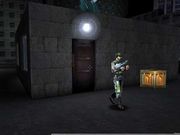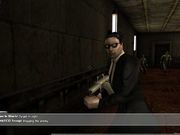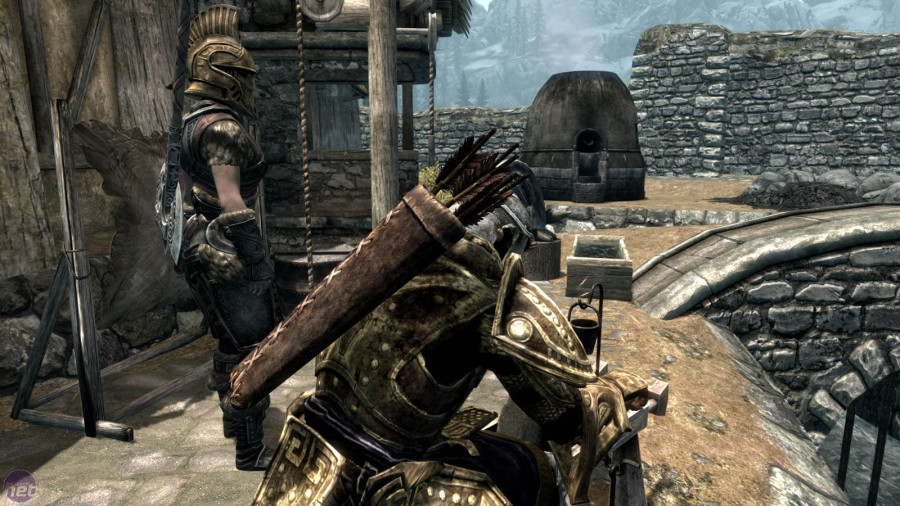



This month we'll finally get our grubby mitts on Deus Ex: Human Revolution, the third entry in the legendary RPG series. In this article we look back to the original Deus Ex - widely regarded as one of the best games ever made - and examine the legacy that Human Revolution must live up to.
You are watching a guard at the entrance to a walled-off compound, learning his routine as you loiter in the shadows nearby. You are thinking about your options.
The obvious choice is to simply take the guy out. You could snipe him from a distance, snuffing him out with a single headshot, but you're worried about the noise that would make. Besides, you're not in the mood for killing someone unless you absolutely have to. You could creep in and use a non-lethal weapon - a taser, tranquilising crossbow, or pepper gas spray - but while these tools are quiet, they're also risky.
The safest approach of all might dispense with combat altogether; you scoped out a back door a few minutes ago, and if you can get past the lock that would afford you a silent way in. So, are you going to look a way to learn the password? Or would you rather hack your way past security? Hell, if you find a chocolate bar and give it to that hungry urchin you met earlier, he might know of a different path in.
In Deus Ex, there's always another way to get things done. The game rarely gives you fewer than three routes into an area of interest, and often you can find the ways that seem to bend or break the rules altogether. In the situation I just gave, you could also climb over the outer wall by grabbing smaller items and dumping them in a big pile - provided, of course, that you had upgraded your lifting abilities. Late in the game you encounter enemies who explode when they die, and if you can be bothered to lure one to the appropriate doorway, you can use their demise to open a frustrating dead-end.
That's why I love Deus Ex: it's a game where you can use a rocket launcher to bypass all that tedious hunting for keys and passwords. It's an idea that seemed incredibly fresh back in 2000, and it's a crying shame that it never became an industry standard. For decades we've been taught that a locked door is a request for patience. "Play properly," it seems to say. "Find the key, and you shall be rewarded." It's a carrot and stick mechanic - but Deus Ex breaks the stick and lets you chomp on you orange prize as soon as you like. Take a jam jar, throw it against the nearest wall, and then use your fingers to scoop the sticky goodness from the resulting glassy mess. That's what it feels like when you blow open a safe in Deus Ex.

But it's not all about locked doors. If anything, Deus Ex is about freedom - both the freedom given to you, the player, and the freedom that's being curtailed by sinister forces of government oppression. From the Majestic 12 to The Illuminati to the Men in Black, the game's plot provides a crash course in 20th Century conspiracy theories. The story ferries you from New York to Hong Kong, from the catacombs beneath Paris to the metal corridors of Area 51. And appropriately enough for a game so concerned with secrets, there's a vast sea of hidden stuff to find at every stop along the way.
For most of the game's duration, the levels in Deus Ex take the form of miniature playgrounds, open maps packed with alternate routes and remote cubby holes. Depending on how you're playing - and how you've decided to upgrade your abilities - you might never stumble across some of these places until your third play-though. There you are, leaping about the rooftops in Hong Kong with your super nanobot-powered legs, and then suddenly you crash through a glass window into an apartment you've never visited before. Snoop about and you'll find that it belongs to a secondary character, their personal emails shedding new light onto their character.



